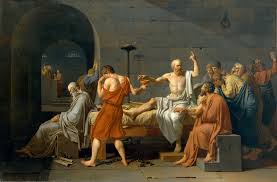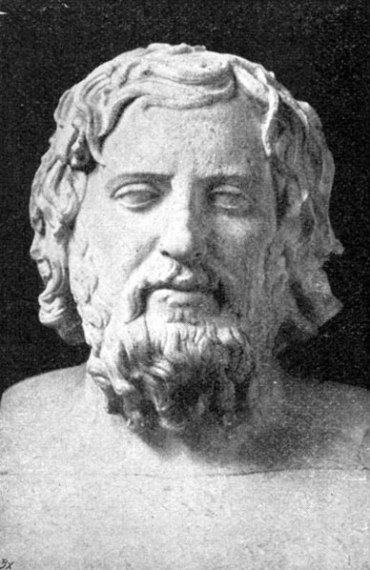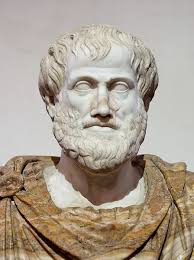The subject of women in antiquity is a fascinating, but admittedly difficult pursuit. Women’s voices in ancient times were largely ignored or silenced in literature, historical narratives, philosophical discourse, and political life. Since pursuits in the philosophical realm were predominantly viewed as the domain of elite men, women, slaves, and other minorities are often left out of the narrative. This makes it extremely difficult to find reliable sources on women in ancient times, what their lives were like, and how they carried themselves. However, this is not to say that women did not participate in such activities. There is, in fact, some surviving evidence of female philosophers who were arguably just as influential and talented at their craft as their male counterparts (Wider, 1986). Much of what we know about women in these times come from male sources, and therefore needs to be closely analyzed and examined for biases and misinformation. Women were often mentioned by male philosophers concerning their roles in society, and were frequently scrutinized for their perceived flaws in character inherent to their gender. One prominent example of this was the wife of Socrates, Xanthippe, who was portrayed as nothing more than a nag and distraction for her husband’s philosophical pursuits (Wider, 1986). Analyzing all aspects, both male philosophical opinions on women and the women themselves, provides important insight into the lives of women in antiquity.

Image retrieved from: pixabay.com
Prominent Men on Women
Progressive Views on Women
Socrates and Plato.
Socrates (470-399 BCE) was a classical Greek philosopher and is said to be one of the fathers of Western philosophy. Socrates as a historical figure is shrouded in mystery, as he left no written records of his teachings. What survives of his ideas comes from the accounts of his students, such as Plato (427-347 BCE) and Xenophon (430-354 BCE), and it is important to note that they may have adapted Socratic thought to suit their own personal beliefs.

Image retrieved from: en.wikipedia.org
Socrates is mentioned numerous times in Plato’s dialogues, and has been credited with saying quite progressive things concerning women, especially in Plato’s Republic. The dialogue outlines how Socrates seeks to defend justice. In speaking on the defense of the state, Socrates touches on the character of women, stating,
“Women and men have the same nature in respect to the guardianship of the state, save insofar as the one is weaker and the other is stronger.” (Pl. Resp. 5.)
It seems here that Socrates is suggesting that the only difference between men and women is their physical strength. In Book V, in a dialect with Glaucon to determine the rightful place of women in the state, Socrates says that women should have the same pursuits and activities as men,
“but in all of them women is inferior to man” (Pl. Resp. 5.). This seems to parallel his thesis on the equality of the genders, however he goes on to say that “if the difference consists only in women bearing and men begetting children, this does not amount to a proof that a woman differs from men in respect of the sort of education she should receive; and we shall therefore continue to maintain that our guardians and their wives ought to have the same pursuits.” Again, “their original natures are the same.” (Pl. Resp. 5.)
He goes on to affirm his beliefs in advocating for equal education of women and men, stating:
“Then if we employ women for the same tasks as men, they must also be taught the same things. … Now, we gave the latter musical and physical training. … So, we must also give these two crafts, as well as military training to the women and employ them in the same way.” (Pl. Resp. 5. 451e6-452a5)

Image retrieved from: commons.wikipedia.org
It seems then that the Socratic/Platonic view is that both men and women possess various attributes and gifts that hold great importance to the state. Therefore, women should be eligible to receive quality educations and be encouraged to participate in society in the same way that men do. According to the Republic, this would work towards a community achieving perfection and justice (Pl. Resp.).

Image retrieved from: en.wikipedia.org
Traditional Views on Women
Xenophon.
On the other hand, Xenophon seems to conform to prevailing misogynistic views on women. In his Oeconomicus, which deals with issues surrounding the household, it is stated “Men can better endure physically adverse conditions. Women are much more fearful, and hence more protective of possessions, while men are more courageous” (Oost, 1977). Xenophon’s version of a Socratic dialogue therefore outlines women as being physically inferior to men, and it is suggested that Xenophon himself agrees with this notion (Oost, 1977). It is also asserted, however, that the primary role of women was to bear children and assist with matters of the home, as their character allows them to be compassionate and emotive (Oost, 1977). It can be inferred then that women were seen simply as a means for the production of legitimate children and a subordinate to men (Oost, 1977).

Image retrieved from: en.wikipedia.org
Aristotle.
Aristotle (384-322 BCE) was the student of Plato, but he seems to espouse an entirely different view about women than that of his seemingly progressive teacher, who even taught women and referenced them by name in his writing. Aristotle held deep-seated misogynistic philosophical views, asserting that women were naturally inferior to men, physically, spiritually, and intellectually. He believed that women lacked self-control and jurisdiction over their minds and emotions. He comments on the female’s lack of rule over the logical thought in Politics, and compares women to children or slaves in their lack of a deliberative element, saying,
“The slave is wholly lacking the deliberative element; the female has it but it lacks authority; the child has it but it is incomplete.” (Arist. Pol.)
Aristotle believed that only men possessed the quality of rational thought, while women were restricted to the emotive and passionate. He asserted his belief that men naturally were more fit to rule and lead, and therefore it was the natural order of things for women to be subordinate to men. He states, “The relation of male to female is by nature a relation of superior to inferior and ruler to ruled” (Arist. Pol). He goes as far as to compare the relationship between men and women to that between children and adults,
“The male, unless constituted in some respect contrary to nature, is by nature more expert at leading than the female, and the elder and complete than the younger and incomplete.” (Arist. Pol.)
Aristotle also touches on the status of women in History of Animals IX. He asserts his beliefs in the character flaws inherent to women and states that men are more virtuous, brave, and intelligent than their female counterparts (Barnes, 1984). He attributes compassion and emotionality to women, along with a lack of critical ability, and believes women are impressionable, easily deceived, and feeble of mind (Barnes, 1984).

Image retrieved from: commons.wikipedia.org
Female Philosophers in Antiquity
Diotima.
Despite the often aggressively misogynistic views presented on women in ancient philosophical discourse, there were a number of women who actually engaged with and participated in this discourse. A particularly notable example is Diotima of Mantinea (fl. 400s BCE), an ancient Greek priestess, prophet, and philosopher (Cavarero, 1995). Unfortunately, the only information we have on Diotima comes from Plato’s writings, so it has often been argued by those studying ancient Greek philosophy that she may be nothing more than a fictional character (Waithe, 1997). Virtually all characters referenced in his writings, however, have been proven to be based on real people living in Athens (Waithe, 1997). It has been stipulated that Diotima is based on Aspasia, the mistress of Pericles, although, Aspasia appears under her own name in Plato’s Menexenus (Waithe, 1997).
Diotima’s ideas are said to be the origins of Platonic Love, and she played an important role in Plato’s Symposium. Yet her ideas are presented through the voice of Socrates, since women were not allowed to the symposia (Cavarero, 1995). In this dialogue, those involved contemplate the nature of love, presenting their speeches directly to the reader (Cavarero, 1995). When the time comes for Socrates to speak, rather than delivering his own speech, he mentions that he was taught “the philosophy of love” by Diotima when he was young. He then outlines a dialogue in which Diotima gives an explanation of love; for her, love is a way to reach a realization of the Divine. According to Diotima, love between humans stirs the mind and soul to an awareness of spiritual matters. An individual moves from the love and appreciation of another human’s beauty toward the appreciation of Beauty as a concept, as it exists outside of the context of humans or things. Then she proceeds toward the love and knowledge of Divinity, which she ascribes as the source of Beauty (Cavarero, 1995).

Image retrieved from: en.wikipedia.org
Diotima’s recount of what beauty is can be closely linked to the Platonic Forms, and it is noted that her “absolute Beauty” is nearly identical with the Form of Good described in other dialogues by Plato. Perhaps her ideas have been shaped and presented in a way to complement Plato’s own, and therefore she may be nothing more than a character used to further advance Plato’s ideas (Waithe, 1987). Nevertheless, she plays a crucial role in the Symposium. Socrates recollects his conversations with Diotima, stating the following:
“I once heard an account from a Mantinean woman named Diotima who was wise and skillful in this and many other things. At one time, by having the Athenians offer sacrifices before the plague occurred, she produced a ten-year postponement of the disease for them, and she instructed me in activities of Love. I’ll try as well as I can to repeat her account for you on my own.” (Pl. Symp. 201d.)
The way that Socrates recounts his encounter with Diotima communicates a deep respect and reverence for her intelligence. He describes her as his equal, in contrast with his fellow philosophers, whom he often speaks of in a condescending manner. It is important to note the way Diotima is revered by Plato and Socrates, as there is no trace of misogyny in the way they speak of her (Cavarero, 1995). As Cavarero (1995) states, “femininity itself belongs structurally to Socrates’ and Plato’s philosophy”. In contrast with views at the time, in which femininity is an inherently negative attribute, they see feminine traits as integral to the figure of “true philosophy” (Cavarero, 1995). The view of a woman as a legitimate teacher, with ideas that hold value is an incredibly important step in the progression of women in the field of philosophy. As one of the only women represented in Platonic dialogue, she represents the feminization of philosophy by Plato (Waithe, 1987).
Arete.
Arete of Cyrene (5th-4th century BCE) is a prominent example, as well. She was taught philosophy by her father Aristippus, who reportedly was a student and friend of Socrates himself (Waithe, 1987). Upon the death of her father, she took ownership of the School of Cyrene, where she taught natural and moral philosophy. It is said that she taught for over thirty-five years, wrote over forty books, and counted approximately 110 philosophers among her students (Waithe, 1987). Her school of philosophy taught a hedonistic approach to pleasure and pain in human existence (Waithe, 1987). The Cyrenaics believed that positive emotions, discipline, knowledge, virtue, and just actions lead to pleasure. Negative emotions, on the other hand, and things such as anger, injustice, lack of virtue and ignorance lead to pain (Waithe, 1987). They viewed ethics and knowledge of good and evil as the primary nature of philosophical discourse and believed that logic and reason were useless topics to explore, as they did not lead to pleasure, their ultimate goal for human existence (Waithe, 1987). Although no documents written by Arete herself survive, we may examine the documents written by the philosophical school she headed, as she likely held similar views.

Image retrieved from: commons.wikipedia.org
Arete was widely admired, and it was inscribed on her tomb that she was “the splendor of Greece and possessed the beauty of Helen, the virtue of Thirma, then pen of Aristippus, the soul of Socrates, and the tongue of Homer” (Waithe, 1987). Her existence is recorded in numerous historical sources written after her death.
Aspasia.
Aspasia (470-400 BCE) was an immigrant to Athens and the mistress to Pericles (Waithe, 1987). According to the records of Plutarch, her home became an important intellectual centre in Athens, which attracted the most widely regarded thinkers, writers, and philosophers – including Socrates (Waithe, 1987). She was a hetaera of good education, and it is noted that she may have run a brothel (Waithe, 1987). She has been mentioned by many of the most notable men in philosophy, including Plato and Xenophon. She serves as the author of the Epitaphia in Plato’s Menexenus, and it is thought that the views presented in this work are her own rather than views ascribed to her by Plato. While it seems as though Plato fundamentally disagreed with her ideas and disapproved of the influence she held over many philosophers at the time, he still included her in the dialogue as he recognized her significant reputation as a philosopher (Waithe, 1987). Plato saw her as an important contributor to the Sophistic rhetoric, which he viewed as having damaging effects on Athens (Waithe, 1987).

Image retrieved from: commons.wikipedia.org
She received much public backlash, as she was allegedly accused of a variety of offenses, including corrupting the women of Athens, and was blamed by many as the cause for the Peloponnesian War (Waithe, 1987). Plutarch sees Aspasia as a significant figure, both in the political and philosophical realm, and writes in Pericles XXIV:
Now, since it is thought that he proceeded thus against the Samians to gratify Aspasia, this may be a fitting place to raise the query what great art or power this woman had, that she managed as she pleased the foremost men of the state, and afforded the philosophers occasion to discuss her in exalted terms and at great length. (Plut. Per.)
Despite attacks on her character and accusations of misdeed, it appears that Plato was impressed with her intellect, and she was both his and Socrates’ teacher in rhetoric (Waithe, 1987). It seems as though Plato, among other philosophers at the time saw her as a threat in a political and intellectual sense (Waithe, 1987). She was clearly a highly intelligent woman and was quite active inside political and philosophical circles (Waithe, 1987). She is widely regarded as being a highly influential figure in the advancement of women as philosophers at the time.
Final Thoughts
In spite of the widespread erasure of women and minorities from the narrative in history, politics, and philosophy, these marginalized people continue to make their voices heard. There are many other notable women documented, albeit briefly in philosophy, and many who have been lost in history. Although pursuing the voices of women in ancient philosophy is an extremely difficult task, it is important to examine, as it gives us valuable insights on what life was like for the minorities, and gives us a more accurate account of the lives of all people in antiquity.
—————————————————————————————————————————————-
References:
Barnes, J. (1984). History of animals. In J. Barnes (Ed.) The complete works of Aristotle: the revised Oxford edition. Princeton, New Jersey: Princeton University Press.
Cavarero, A. (1995). In spite of Plato: a feminist rewriting of ancient philosophy. Oxford, UK: Polity Press.
Oost, S. (1977). Xenophon’s Attitude toward Women. The Classical World, 71(4), 225-236.
Reeve, C. D. C. (2004). Plato Republic. (Reeve, C. D. C. Trans.). Indiannapolis, IN: Hackett Publishing Company.
Rosen, S. (1968). Plato’s Symposium (Rosen, S. Trans.) London, UK: Yale University Press.
Waithe, M. E. (1987a). Aspasia of Miletus. In M. E. Waithe (Ed.), A history of women philosophers (pp. 75-81). AH Dordeecht, The Netherlands: Kluwer Academic Publications.
Waithe, M. E. (1987b). Diotima of Mantinea. In M. E. Waithe (Ed.), A history of women philosophers (pp. 83-116). AH Dordeecht, The Netherlands: Kluwer Academic Publications.”
Wider, K. (1986). Women Philosophers in the Ancient Greek World: Donning the Mantle. Hypatia, 1(1), 21-62.
The religions of the day probably say more than the philosophers because it’s probably the case people drew from myths in a lazy fashion back then just as they do now
What do we see
Slightly more stories about women in Greek, Roman and Egyptian myths.
All of them examples of misogynistic attitudes
Except for one Hera’s creation of Athena which even then is still sexist
As an act of revenge against Zeus, Hera creates a girl warrior inside Zeus’ head. The result is a being that never married and was known for enormous intelligence and sat on the throne of justice, called upon by warriors in times of battle.
Okay so you mean the many many Athenian women who were assaulted by Zeus (and every second story about that guy involves rape) couldn’t figure out how to raise a girl like that without her being crafted within him? It’s ludicrous. “women cannot beat misogyny unless taught by a man’s mind how to do it”. As though they had no minds of their own…..and would only not want to marry of their mum was a jilted wife with a shit husband. But that’s okay because she will be more of an atsekicket than a Spartan.
Wait she can’t just be intelligent….because she is intelligent?
And this is the least misogynistic myth of them all. The least misogynistic of all the info European and Semitic myths. This is the most empowered one.
Honestly if women want stories of empowermemt they have to write their own knowing full well that there’s a bunch of people make, female, feminist and misogynist who will bring them down anyway.
There are no empowered goddess stories and all the gods are evil.
LikeLike